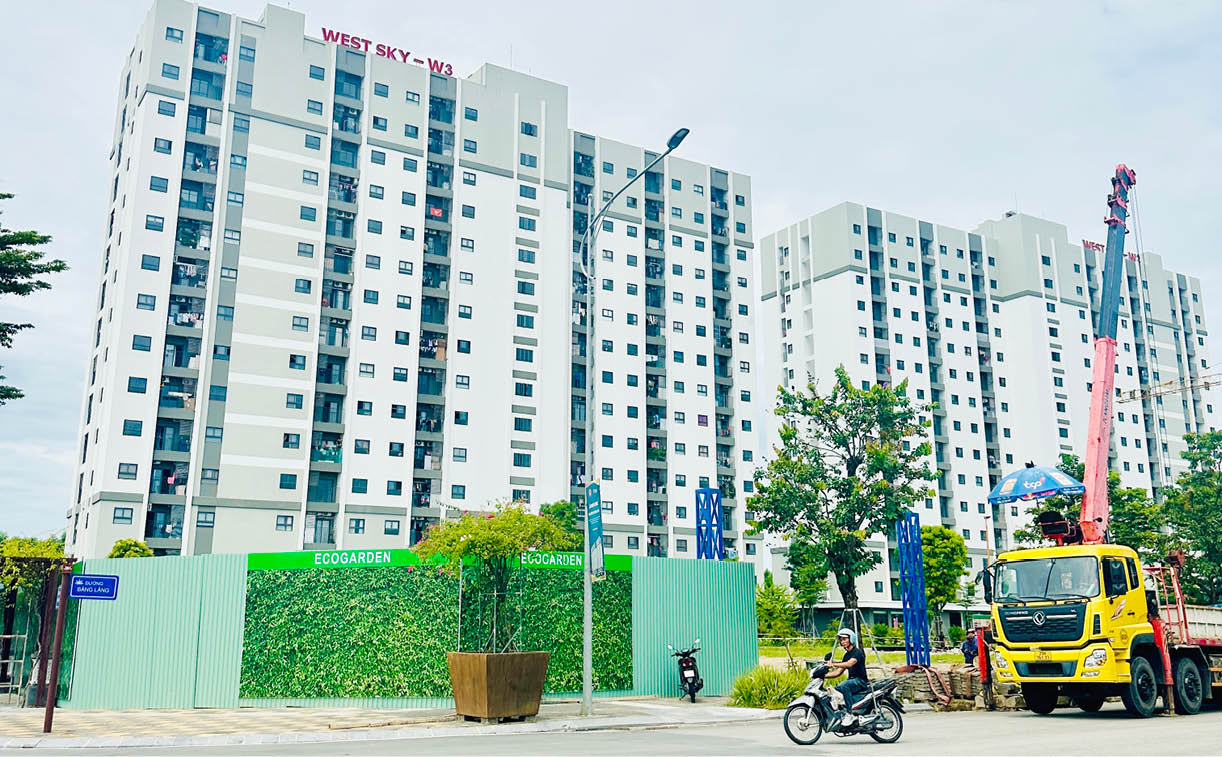 |
| Ecogarden social housing in the center of Hue city with synchronous infrastructure. Photo: Ngoc Hoa |
This statement has touched on the inherent weakness of the long-standing social housing policy: It exists very grandly on paper in many localities, but in reality it is poor in both location and quality of life.
And this is not just the story of a few localities with poor planning, but the long-term consequence of a wrong mindset: Considering social housing as an auxiliary obligation, a minimal social security policy, rather than an essential component in a sustainable urban, economic and social development strategy.
The Prime Minister emphasized that social housing must have “full infrastructure of transportation, electricity, water, telecommunications, social services, health care, culture andeducation ”. This is not a luxury requirement, but a basic living condition for a family to be able to stabilize their life, work and raise their children with peace of mind.
When social housing is planned without connectivity, without nearby schools, markets, medical stations or public transportation, the “house” itself is no longer a solution, but only a temporary place to live, easily abandoned or quickly degraded.
In other words, if we only invest in the shell, which is cheap apartments, without investing in the surrounding living ecosystem, social housing will continue to be considered "cheap goods" for the poor, and will never solve the problem of inequality in access to opportunities.
Social housing is not only a social policy, but also a part of strategic planning to retain the workforce, ensuring a stable human resource for industrial parks, urban areas and service centers. When social housing is built near the workplace, it will reduce travel costs, reduce pressure on traffic infrastructure and increase labor productivity. When housing areas are reasonably arranged in terms of social infrastructure, people will be motivated to stay, attach to and develop with the locality. This is the reason why Resolution 201/2025/QH15 of the National Assembly is considered a breakthrough: Not only removing institutions, shortening administrative procedures but also allowing the formation of a National Housing Fund, expanding the subjects eligible for rent, enjoying policies...
Cutting down on procedures for building social housing not only helps reduce investment costs, but also shortens the time to implement policies - something that businesses and people have long desired.
However, as the Prime Minister emphasized, no matter how groundbreaking a policy is, it cannot be implemented on its own; if local leaders do not take drastic action, if departments and branches continue to delay, avoid responsibility or push it to other levels, then the reduction of procedures will only remain on paper.
In particular, it is necessary to put an end to the situation where many localities do not want to put social housing on “golden” land or urban core land. Therefore, social housing is often pushed to “leftover” areas - places with low commercial value, to avoid “affecting commercial land use planning”.
Another issue is the role of businesses. In fact, there are many businesses that want to build social housing, but they are stuck with too many procedures, long payback periods, while not enjoying attractive enough incentives.
Resolution 201 has opened many "doors" for the private sector, including regulations on exemption from construction permits, land allocation without auction... But what businesses need more is a transparent environment, clear procedures, and no "extra costs".
We cannot expect businesses to build social housing as a moral obligation. We need to see this as a special market segment, where the State plays a role in creating stable, long-term profits through fiscal policy, land and financial guarantee mechanisms. Otherwise, no matter how groundbreaking the Resolution is, there will be a lack of real workers.
Social housing is not a cheap solution to an expensive problem. It is an investment in the future of the workforce, a “soft infrastructure” for the country’s sustainable development.
When the Prime Minister raised the issue of not building social housing in “the middle of nowhere”, it was not just a policy statement, but a reminder: to truly develop, we must fundamentally change our thinking about human values in urban planning and the social security system.
Source: https://huengaynay.vn/kinh-te/xay-dung-giao-thong/nha-o-xa-hoi-khong-the-nam-o-noi-khi-ho-co-gay-155235.html



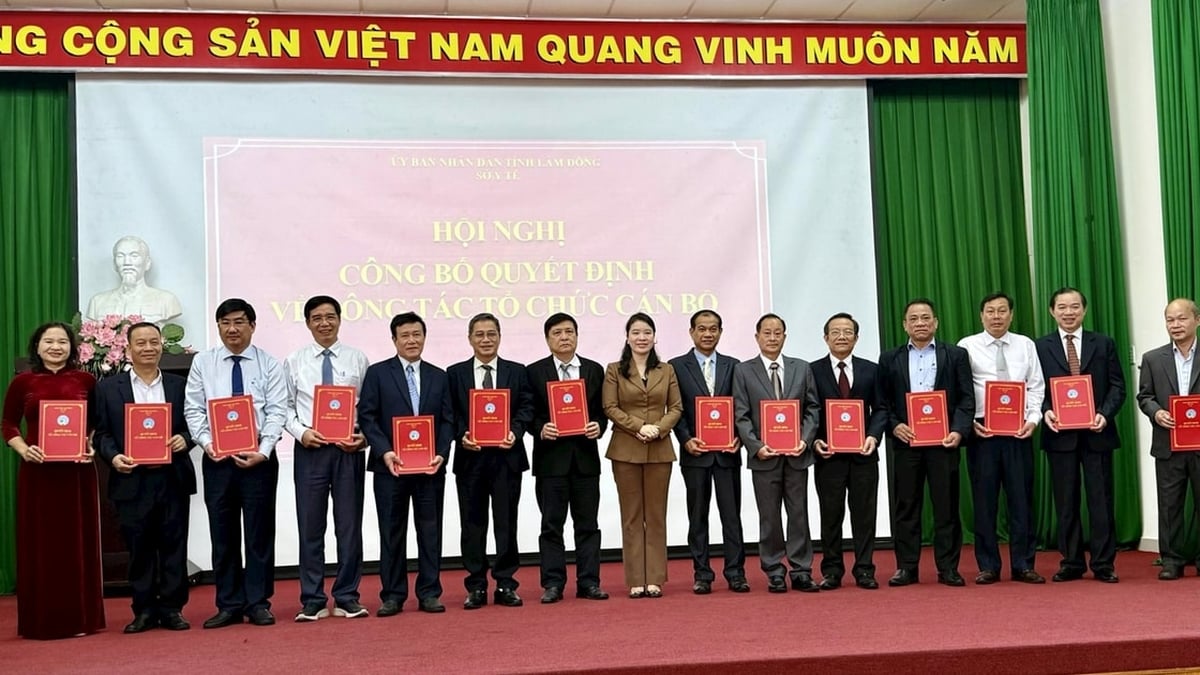




















![[Photo] Gia Lai provincial leaders offer flowers at Uncle Ho's Monument with the ethnic groups of the Central Highlands](https://vphoto.vietnam.vn/thumb/1200x675/vietnam/resource/IMAGE/2025/7/9/196438801da24b3cb6158d0501984818)











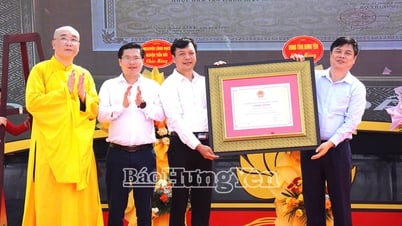



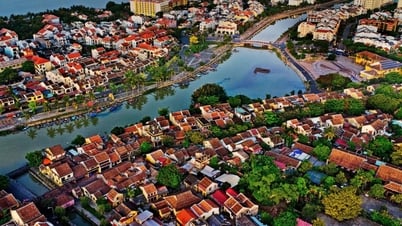



























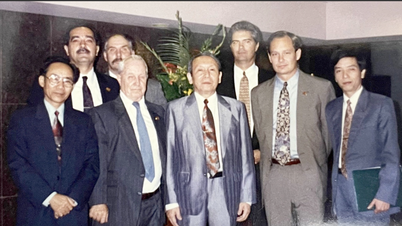


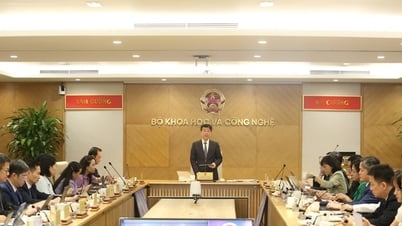





























Comment (0)